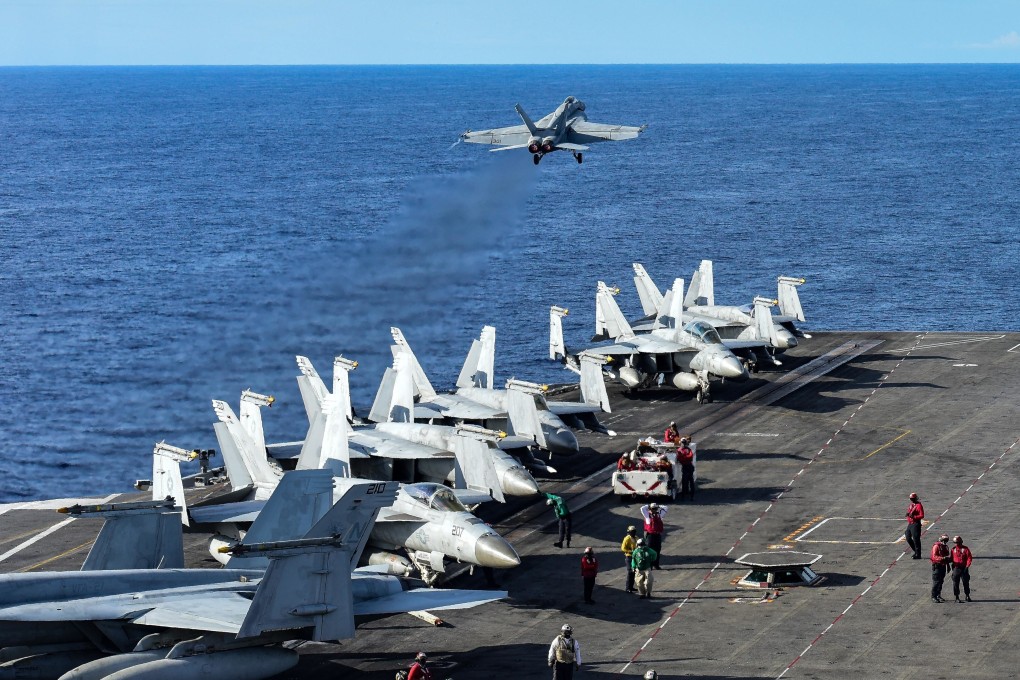Advertisement
South China Sea: ‘If China attacks our navy, we’ll call the US’, Philippines says
- In a first under the Duterte administration, Manila says it is prepared to invoke its Mutual Defence Treaty with the US in the face of Chinese aggression
- Foreign Secretary Teodoro Locsin Jnr also vows to continue air patrols over the South China Sea that Beijing has denounced as ‘illegal provocations’
Reading Time:5 minutes
Why you can trust SCMP

Manila will invoke its defence agreement with the United States if China attacks its naval vessels in the South China Sea, Philippine Foreign Secretary Teodoro Locsin Jnr said on Wednesday.
His comments mark the first time the Rodrigo Duterte administration has openly declared it would turn to Washington for help, amid ongoing flare-ups between Manila and Beijing in the disputed waters.
Locsin, who appeared on the ANC news channel’s morning talk show, said Manila would continue air patrols over the South China Sea despite Beijing’s calls to halt what it described as “illegal provocations”.
“They can call it illegal provocations, you can’t change their minds. They already lost the arbitral award,” he said, referring to the 2016 decision by an international tribunal that ruled against most of Beijing’s expansive claims to the South China Sea.
Advertisement
“[But if] something happens that is beyond incursion but is in fact an attack on say a Filipino naval vessel … [that] means then I call up Washington DC,” he added.

01:05
‘China has the arms, we do not’, Duterte rules out confronting Beijing in the South China Sea
‘China has the arms, we do not’, Duterte rules out confronting Beijing in the South China Sea
Pressed by presenter Karen Davila on the circumstances that would make Manila make the call to the US, he refused to go into specifics, saying “I will not discuss that because the essence of deterrence theory is uncertainty.”
Advertisement
Advertisement
Select Voice
Choose your listening speed
Get through articles 2x faster
1.25x
250 WPM
Slow
Average
Fast
1.25x